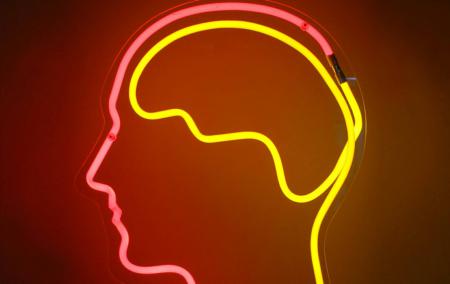Brain health: Another reason older adults should exercise
Physicians have long championed exercise for its wide-ranging health benefits. Most of us are aware that exercise is associated with increased longevity, the prevention of heart disease, and greater levels of energy. If these benefits aren't motivation enough for you, you might consider a lesser known incentive to get in shape: brain health.
Regular exercise can make us mentally sharper and may help counteract cognitive decline. Many physical factors are thought to contribute to Alzheimer's disease, including diabetes, blood pressure and cholesterol. Exercise mitigates these risk factors, but also has direct effects on the brain that keep it healthy in older age.
How Alzheimer's disease affects the brain
Alzheimer's disease begins with the loss of neurons in the hippocampus, a region of the brain responsible for processing memory. Dangerous protein formations known as "plaques" and "tangles" disrupt the signaling between these neurons and also cause death from within the cells, causing short-term memory loss. Eventually, the plaques and tangles spread to other areas of the brain, leading to widespread loss of cells and the more advanced symptoms of Alzheimer's disease: confusion, behavioral changes, disorientation relating to space and time, decreased language skills, and loss of physical ability.
While there are various factors that may contribute to Alzheimer's disease, people who carry a gene called the "E4" are at increased risk. One 2014 study at the Cleveland Clinic in Ohio found that regular exercise was a game-changer for these people. This study looked at two groups of older adults: those with and without the E4 gene. These groups were further divided into older adults who exercised and older adults who did not exercise. The researchers measured the volumes of each participant's hippocampus and then saw them again after 18 months. They found that the hippocampi of the predisposed adults who did not exercise had shrunk an average of 3 percent -- a sign of early Alzheimer's disease. In contrast, those predisposed participants who regularly exercised experience no loss of brain cells at all. On average, their brain structure was identical to people who did not carry the E4 gene.
These results made a strong case that exercise can help preserve the structural integrity of the part of our brain associated with memory.
How exercise keeps brain cells healthy
Even in older age, we have the ability to form new neural connections. This ability, known as "neuroplasticity," involves stem cells and a set of molecules known as "neurotrophic factors." The production of these molecules just happens to be stimulated by exercise! According to Professor Nil Giladi of Tel Aviv University, when we exercise, neurotrophic factors act on the stem cells to encourage them to mature into adult brain cells. This means that a person who exercises will have more cells available in the hippocampus to make connections with other cells.
Speaking at a conference at Tel Aviv University, Professor Giladi explained how "exerting the muscles activates genes that encourage the muscle cells -- and apparently others -- to create proteins that increase the synthesis of trophic factors. This is why those who exercise regularly look younger and have younger brain function, and their cells are more protected from diseases, trauma and natural aging."
Although exercise is not a "cure" for Alzheimer's disease and other dementias, its protective effects still merit optimism. The Cleveland Clinic recommends that individuals diagnosed with Alzheimer's disease continue to exercise for as long as they are able. In addition to stimulating neural connections in the brain, exercise can provide valuable, low-risk social opportunities for older adults who are already experiencing confusion and memory loss. In many assisted living memory support communities, group exercise is a key part of the daily schedule and an effective therapy for residents suffering from Alzheimer's-related depression and irritability.
In these settings, exercise is more than just a preoccupation with physical health -- it is also a key component of mental and spiritual well-being.
ADAM JOHNSON WRITES FOR YOUVILLE ASSISTED LIVING RESIDENCES, MEMBER OF COVENANT HEALTH SYSTEMS, A CATHOLIC, MULTI-INSTITUTIONAL HEALTH AND ELDER CARE ORGANIZATION SERVING NEW ENGLAND.
- Adam Johnson writes for Youville Assisted Living Residences, member of Covenant Health Systems, a Catholic, multi-institutional health and elder care organization serving New England.



















